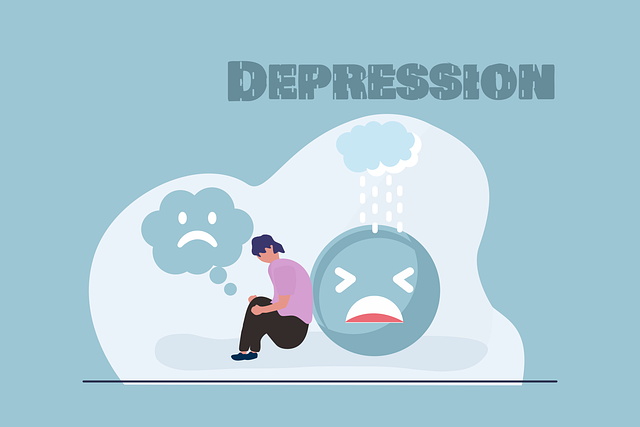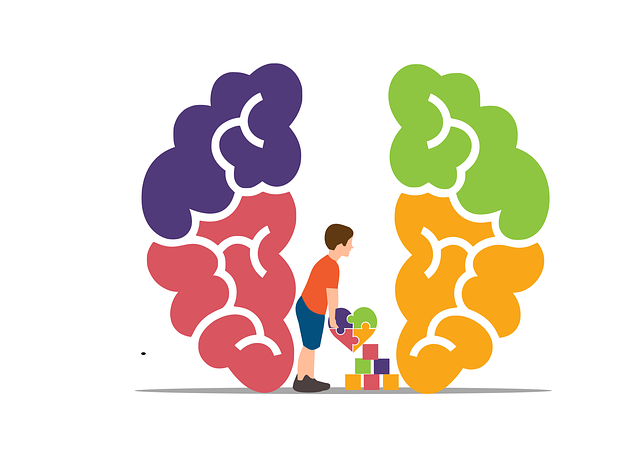Littleton Women's Issues Therapy (LWIT) addresses the unique stressor challenges faced by modern women through tailored Mental Health Education Programs, empowering them with tools for effective stress management. Their innovative programs combine traditional therapy and modern techniques, offering safe spaces to explore triggers, build resilience, and implement stress reduction methods like mindful breathing and physical activity. LWIT's comprehensive approach promotes self-care, setting boundaries, and cultural sensitivity in mental healthcare, enhancing overall mental wellness and life challenge navigation for diverse female populations.
In today’s fast-paced world, stress management has become a crucial aspect of maintaining mental well-being, especially for women. This article explores effective strategies to combat stress and its impact on women’s lives. We delve into the important role that therapy plays, with a focus on Littleton Womens Issues Therapy, which offers valuable insights and techniques. From understanding stress triggers to adopting practical daily routines and building resilience, these tools empower women to navigate life’s challenges. Discover how simple yet powerful coping skills can lead to lasting mental health improvements.
- Understanding Stress and Its Impact on Women's Mental Health
- The Role of Littleton Womens Issues Therapy in Teaching Effective Stress Management Techniques
- Practical Strategies for Daily Stress Reduction
- Building Resilience: Long-term Coping Skills for Women
Understanding Stress and Its Impact on Women's Mental Health

Stress is a pervasive aspect of modern life, but its effects are particularly profound for women, impacting their mental health and overall well-being. Research suggests that women often face unique stressors related to societal expectations, caregiving responsibilities, and work-life balance. These pressures can contribute to increased anxiety, depression, and other mental health concerns. Understanding the root causes of stress is a crucial step in developing effective coping mechanisms.
At Littleton Women’s Issues Therapy, we recognize the importance of addressing these issues through tailored Mental Health Education Programs Design. Our goal is to empower women with the knowledge and tools necessary to navigate life’s challenges and promote mental wellness. By fostering Mental Health Awareness, we aim to create a supportive environment where women can learn healthy ways to manage stress, ultimately enhancing their quality of life.
The Role of Littleton Womens Issues Therapy in Teaching Effective Stress Management Techniques

Littleton Women’s Issues Therapy (LWIT) plays a pivotal role in empowering individuals to manage stress effectively through tailored guidance and support. The therapy centre has pioneered various innovative programmes focused on crisis intervention and mental wellness coaching, offering clients a safe space to explore and overcome stressors.
Through these specialised programs, LWIT provides practical tools for identifying triggers, cultivating resilience, and implementing effective stress reduction methods. Their experienced therapists facilitate learning experiences that enable individuals to navigate life’s challenges with greater equanimity and emotional well-being. By combining traditional therapy approaches with modern stress management techniques, Littleton Womens Issues Therapy ensures comprehensive support tailored to each client’s unique needs.
Practical Strategies for Daily Stress Reduction

Incorporating daily stress reduction strategies is a powerful tool for anyone seeking to improve their mental wellness, and Littleton Womens Issues Therapy offers valuable guidance in this realm. Simple yet effective practices like mindful breathing exercises can be done anywhere, anytime, helping to calm the mind and body. Regular engagement in physical activity, such as walking or yoga, releases endorphins, nature’s mood elevators, providing an instant boost to one’s mental wellness.
Additionally, setting boundaries and prioritizing self-care are essential aspects of stress management. Learning to say ‘no’ without guilt and scheduling dedicated time for activities that bring joy and relaxation can significantly contribute to overall mental wellness. Many find solace in keeping a journal, practicing gratitude, or engaging in creative pursuits as part of their daily routines. These strategies, combined with the support from Mental Wellness Coaching Programs Development, can create a comprehensive approach to managing stress effectively.
Building Resilience: Long-term Coping Skills for Women

Building resilience is a key aspect of long-term stress management for women, particularly those navigating complex life challenges through Littleton Womens Issues Therapy. By fostering mental fortitude and adaptive coping skills, individuals can better withstand and overcome stressful situations. This involves cultivating a mindset that embraces challenges as opportunities for growth rather than perceiving them as insurmountable obstacles.
Mindfulness Meditation plays a crucial role in this process, enabling women to develop present-moment awareness and emotional regulation. Incorporating practices such as meditation and deep breathing exercises allows individuals to detach from stressful thoughts and cultivate inner calm. Additionally, Cultural Sensitivity in Mental Healthcare Practice is essential, ensuring that therapeutic approaches are tailored to the unique experiences and perspectives of diverse female populations, enhancing the effectiveness of stress management interventions. Increased Mental Health Awareness empowers women to recognize early signs of stress and proactively seek support, thereby breaking down barriers to care and promoting holistic well-being.
Littleton Womens Issues Therapy plays a pivotal role in empowering women to combat stress and improve their mental health. By understanding the profound impact of stress on women’s lives, this therapy offers tailored techniques for effective management. Through practical strategies and building resilience, individuals can achieve lasting coping skills, enabling them to navigate life’s challenges with greater ease and well-being. These insights empower women to take control of their mental health and foster a more balanced and fulfilling lifestyle.














